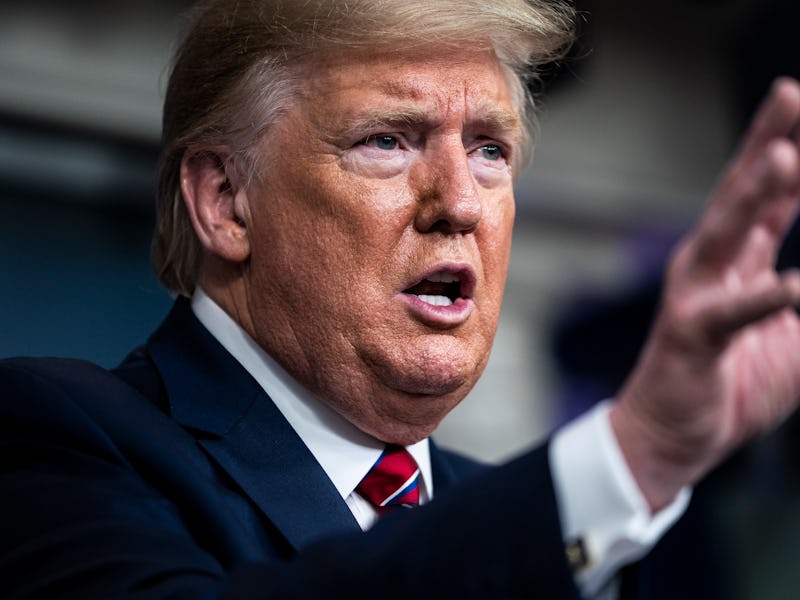Coronavirus: Trump switching strategy could 'kill potentially millions', warns health expert
The president has signaled that he could reconsider current measures.

A decision to reverse the American government's social distancing measures could "kill potentially millions," a public health expert claimed Monday. The comments, made in a viral Twitter thread, came hours after president Donald Trump suggested he would reconsider the strategy to fight the coronavirus pandemic at the end of the current 15-day period.
"We cannot let the cure be worse than the problem itself," Trump wrote on his Twitter page Monday. "At the end of the 15 day period, we will make a decision as to which way we want to go!"
But one expert has warned that wavering could have horrific consequences. Tom Inglesby, director of the Johns Hopkins Center for Health Security, warned in a Twitter thread with over 9,000 retweets that "anyone advising the end of social distancing now, needs to fully understand what the country will look like if we do that...COVID would spread widely, rapidly, terribly, could kill potentially millions in the yr ahead with huge social and economic impact across the country." Inglesby's warning fits with an Imperial College London report earlier this month, which claimed up to 2.2 million Americans could die in the worst-case scenario.
Trump's comments follow growing calls to reconsider the social distancing measures, designed to stop the spread of the coronavirus pandemic that has infected over 30,000 people in the United States. The measures, introduced on March 16, urge people to avoid gatherings of more than 10 people and skip social events. The Guardian reported that conservative commentators like Bret Stephens and Tom Fitton have questioned the strong response to the virus, with Fitton writing on Twitter that "the consequences of this national shutdown [...] are dire."
But instead of suggesting the country could reconsider its position, Ingelsby warned that current understanding is still developing. Ingelsby's thread was aimed at scrutinizing claims from "prominent US voices" that call for an end to social distancing, "citing rationale that they're worse than impact of COVID itself." He wrote that "COVID has been spreading w/ exponential growth in US for some time, and we're just beginning to get an understanding of how extensively."
Inglesby's warning.
Ingelsby noted that cases in the U.S. have rapidly expanded from around 70 a few weeks ago to nearly 40,000 today. Systems are under intense pressure even with social distancing in place:
- Hospitals are warning they will not have enough ventilators within a week.
- Rapid diagnostics is still lacking, so it can take days to work out if someone has the virus.
- There is no capacity to understand how many people outside of hospitals have the disease, people who are not sick enough to be admitted to a hospital.
- If a community's health care system stops working, fatalities could rise much higher than just one percent.
- Overwhelmed hospitals could struggle to help even the 15 percent of cases where people are severely ill.
- Interventions take a while to work: Wuhan's interventions didn't start to reverse the spread until about three weeks.
Third parties have jumped in to support these efforts. Elon Musk, Mark Zuckerberg and Tim Cook are three of the several tech CEOs that have pledged masks and resources to support healthcare professionals.
Instead of reversing its position, Ingelsby suggested the country should toughen its position. He called for airport screenings, serology tests to see who has already been infected, "extradordinary" quantities of masks and ventilators, and increased medical care capacity. Once numbers start to drop, authorities could then carry out contact tracing and isolate cases. With these measures in place, the government could then reconsider its position.
Warning signs suggest the American economy is on a dire track. James Bullard, president of the Federal Reserve Bank of St. Louis, warned Sunday that unemployment could soar to 30 percent and gross domestic product could drop 50 percent. A $1.8 trillion stimulus package, which has been dubbed part of the world's largest megaproject, failed to pass the Senate Monday.
The alternative, however, could result in an outcome far, far worse.